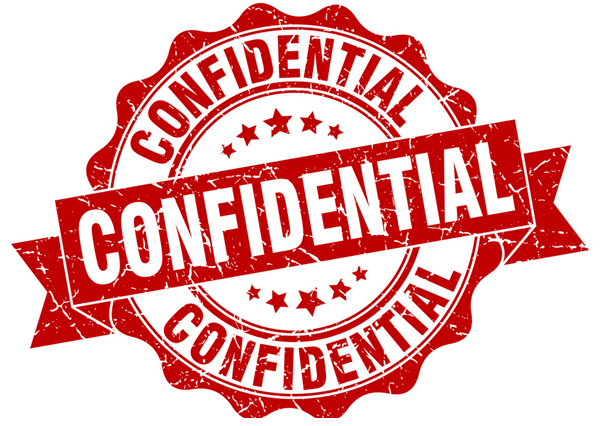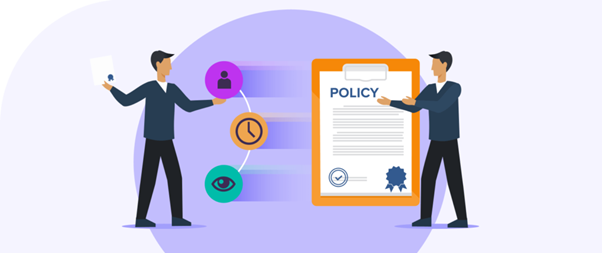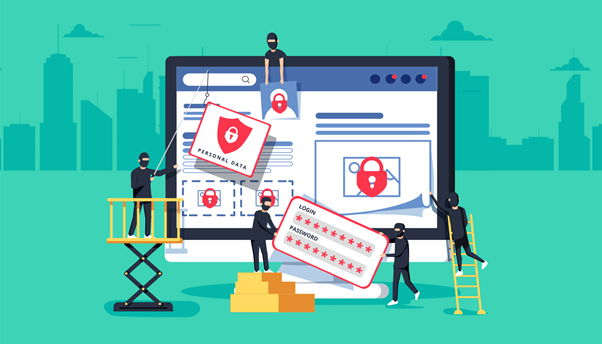Pointers
1. Introduction
2. What does employee monitoring mean?
3. Know the Ethical Repercussions of employee monitoring
3.1 Personal Data and Privacy Breaches
3.2 Weakens Employee’s Trust and Morale
4. Top 7 Ethical Considerations for Using Employee Monitoring Software on Remote Workers
4.1 Discuss with your employees
4.2 Know the legal requirements for remote working
4.3 Use monitoring software that doesn’t track personal phone calls or files
4.4 Educate yourself on what is acceptable remote work behavior in your industry
4.5 Keep monitoring results confidential. Do not share information with others
4.6 Get all employees to agree to be monitored during the onboarding process
4.7 Ensure you have a strong privacy policy in place so there are no grey areas
Closing Thoughts

Employee monitoring is a successful employee management approach, but privacy issues and the legal concerns of “how much is too much?” have sparked many inquiries about the ethical aspects of monitoring employees.
For many businesses, this is perhaps the first time they’ve ever dealt with mostly remote staff. And this change has generated a new interest in monitoring software tools that allow employers to look at what a remote worker is doing.
But while monitoring your remote employees, you should follow certain ethics to avoid legal trouble.
Are you curious to know about employee monitoring ethics?
This post will discuss the top 7 employee monitoring ethics while using work monitoring software on remote workers.
Let’s dive in-
What does employee monitoring mean?

Employee monitoring entails monitoring your employees’ behaviors with various workplace surveillance systems, such as video surveillance, electronic security, computer monitoring, and so on.
On the one hand, employee monitoring ethics advise you on how to maintain track of your workers and their job without intruding on their privacy. As a result, you may build a transparent employee monitoring system that promotes a secure and effective working environment.
Is it intentional unethical monitoring or not?
Not on purpose, to be precise.
Employers frequently attempt to safeguard their businesses and trade secrets. The majority of them are probably unaware of the ethical issues associated with staff monitoring.
With the rise in availability of sophisticated employee monitoring software, not every company confines their monitoring to work hours. Employees may view such surveillance methods as an invasion of privacy, particularly if they do not trust their employers. This can result in demotivated or unengaged workers, legal action against the firm, or high staff turnover.
This mutual mistrust is exacerbated when remote workers are involved.
But, Why?
Remote work doesn’t necessitate working in a physical location, so remote employee trackers take on the role of being the sole means to keep track of their job-related activities during business hours.
However, using a monitoring tool while working remotely on one’s personal computer or device might be interpreted as gathering personal information during non-work hours.
This breaches employee privacy and makes remote workers more concerned when employers tell them to install employee monitoring software on their systems.
Do you want to know the major ethical repercussions of employee monitoring?
Read the following section to know the answer-
Know the Ethical Repercussions of Employee Monitoring
Here are two ethical issues associated with employee monitoring to be aware of in order to gain employee confidence and maintain openness in your organization.
1. Personal Data and Privacy Breaches
Do you know what makes most workers uncomfortable about being observed?
It is a personal privacy invasion.
Employees may get uncomfortable when their computer usage is constantly monitored while at work.
This might be higher for workers who are being subjected to monitoring for the first time — they may have a greater expectation of privacy as they have not been tracked earlier.
Why not keep track of things without informing the staff?
Tracking workers without their consent may be a significant ethical issue. You will not only find yourself in legal difficulties, but you will also quickly lose your staff’s confidence!
The easiest approach is to inform staff what you’ll be monitoring and how you’ll follow the monitoring standards set by your state/nation.
2. Weakens Employee’s Trust and Morale

Employee monitoring might create distrust and animosity in the workplace.
Investigating their personal accounts/messages just to be sure they’re not doing anything wrong might send the wrong signals.
Especially, if you are performing it secretly.
Yes, there may be workers who jeopardize corporate data or act unethically. But assuming everyone is the same can directly influence their motivation, productivity, and performance.
Furthermore, there is a distinction between monitoring and intrusion.
Intrusion refers to peeping into the personal data of your workers, which has nothing to do with your company during monitoring.
If your employees feel intruded on, they may become dissatisfied and unappreciated, leading to poor work culture, damaged corporate reputation, and even legal issues.
Top 7 Ethical Considerations for Using Employee Monitoring Software on Remote Workers
1. Discuss with your employees
You must discuss your intentions of monitoring online activity with your employees before you begin. It is also an excellent idea to let them know that you are not trying to spy on them and that there should be no feeling of mistrust.
When you discuss your intentions, you may want to consider addressing concerns that may come up. They will likely be apprehensive about being monitored, especially if they think you might see personal or confidential information. If they know upfront what areas of their activity will be monitored, it can help alleviate those fears. It can also make things easier when there is a problem, and you need access to records to find and fix it.
You should also let them know that all records are secured with password protection, ensuring nobody without authorization will have access regardless of how many employees work at your company.
2. Know the legal requirements for remote working

In many areas, employees are allowed to work outside of traditional office space while still completing required tasks. It’s a good idea to confirm whether or not your area has any specific requirements and make sure you fully understand them before embarking on a remote-work initiative. If so, make sure you follow these legal guidelines to help ensure your business stays in compliance with local laws.
For example, companies with workers in California must provide daily rest periods and weekly days off for full-time employees. Companies that do not comply can be fined for violation plus additional liquidated damages.
3. Use monitoring software that doesn’t track personal phone calls or files

When it comes to monitoring software, it’s a good idea to pick one that doesn’t monitor employees when they don’t have work-related duties. For example, most employees would feel uncomfortable knowing their employers had access to information about their personal phone calls or correspondence with family and friends.
In some countries like USA, privacy rights are protected by law, meaning you could end up breaking federal and state laws if you install monitoring software that illegally monitors an employee’s personal communications. If you want to use tracking software, make sure your policy is clear on what behavior is tracked.
4. Educate yourself on what is acceptable remote work behavior in your industry

You may have a difficult time deciding how to use employee monitoring software in a way that doesn’t violate an employee’s rights or other ethical considerations. The best thing you can do is educate yourself on what is acceptable remote work behavior in your industry and culture before implementing new tools. For example, if you are looking for more examples of professional expectations and guidelines, look at Workplace Fairness’s compilation of acceptable remote work practices. This will give you a better idea of whether it is appropriate to track specific tasks or behaviors with technology (or not). Creating written policies about employee monitoring makes things crystal clear for everyone involved—your employees, their managers, HR teams, and executives.
Discuss current state-of-play: Be honest about where you stand right now: What issues do you see at hand? Do any issues need immediate attention? Formalize rules and boundaries regarding remote worker monitoring.
5. Keep monitoring results confidential. Do not share information with others

Regardless of whether you’re monitoring for employee productivity or job security purposes, do not divulge your findings to anyone but those with a need-to-know. You must remain professional, even when presenting bad news. After all, if an employee sees results being discussed openly, they may wonder what you are saying about them behind their back. Even if others have a right to know specific details about someone’s performance (such as upper management), don’t share anything that may be construed as gossip or personal attacks.
Let reports speak for themselves and avoid informal language in e-mails and letters related to your findings. If things must be said face-to-face, wait until after business hours so that you can discuss matters in private.
6. Get all employees to agree to be monitored during the onboarding process
It’s a good idea to get all employees involved and on board with your employee monitoring policy from day one. During onboarding, you can run an online survey asking new hires whether they are willing to be monitored at work in exchange for a generous salary and paid time off. Ensure that these benefits are clearly listed for each question, along with an explanation of what type of monitoring is included in your policy.
A common choice is all incoming emails and phone calls, but if you do include calls, be sure it’s very clear that callers won’t be recorded unless consent is given. It’s also recommended that you define parameters for when (and how) workers should contact management if they notice any problems.
7. Ensure you have a strong privacy policy in place so there are no grey areas

You should clearly tell employees about their rights, what their employer can monitor and what actions may result in disciplinary action. With a firm privacy policy in place, you’ll avoid any legal implications and have a clear guide for how you should use your monitoring software. Create employee guidelines so they know how they should act.
Employers must understand what they can and cannot do when it comes to monitoring employees, but it’s also vital that employees know how best to behave at work, so there aren’t any grey areas.
Whether you give them written instructions or just verbally explain expectations, it’s a good idea to make sure everyone understands where things stand concerning remote workers and monitoring software.
Closing Thoughts
Companies need to be mindful of the significant ethical repercussions and legal requirements when implementing employee monitoring software on remote workers. The seven considerations we’ve provided can help you find a balance between productivity and privacy, so your business is protected from any liability or data breach risks.
If you want an elevated way to stay in compliance with all these guidelines and know what behavior is acceptable for employees at work remotely, request a demo for Workstatus to completely follow the employee monitoring ethics while managing your workforce.
It’s an easy-to-use cloud-based remote employee monitoring software that helps companies track their remote working staff without having access to personal phone calls or files. Plus, it has features like GPS tracking, automated reminders about daily tasks, GPS time clock app, online timesheets, etc. making life easier for both managers and employees alike.
Thanks for reading!!
Source link






